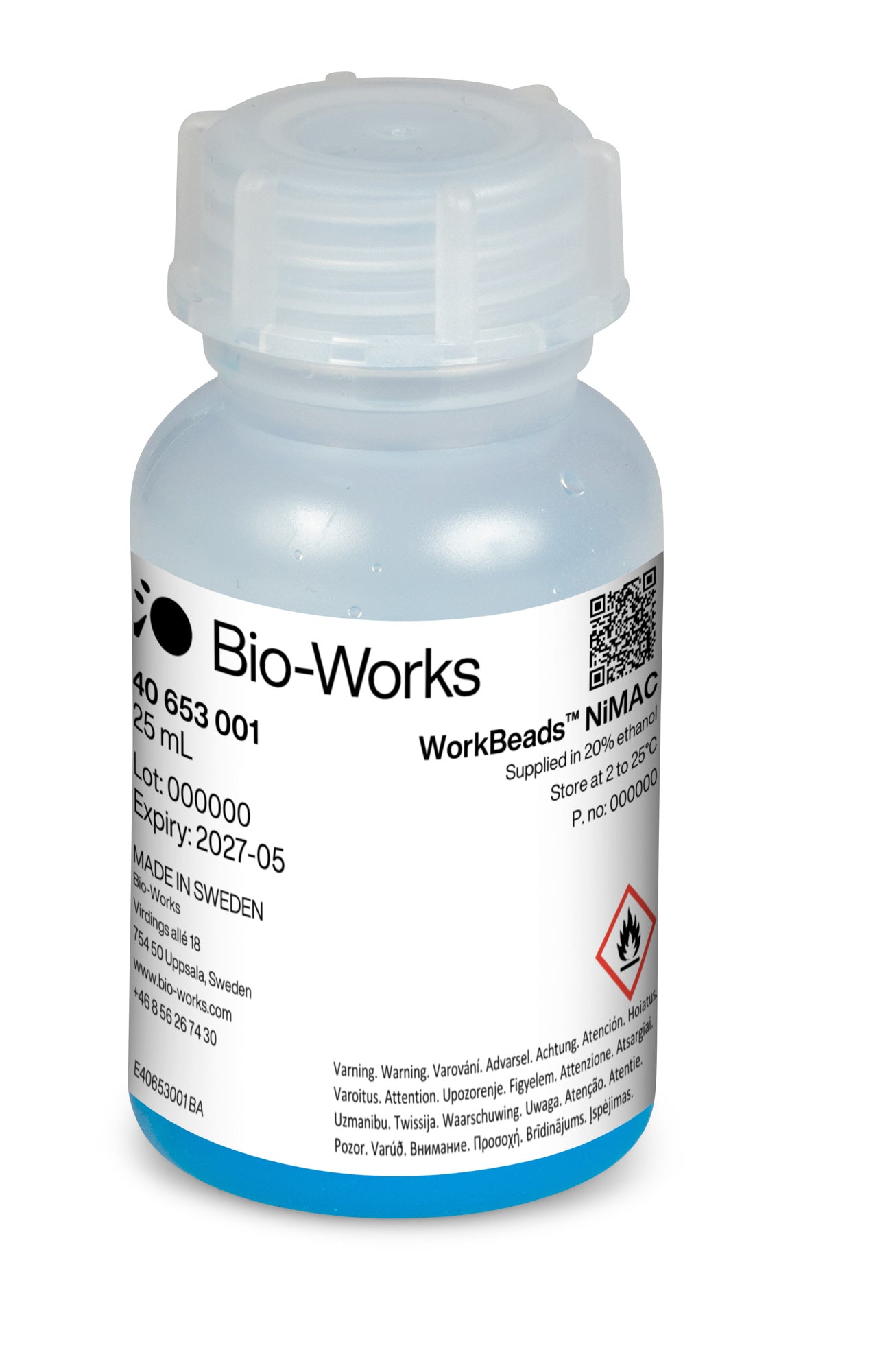
Documents
WorkBeads™ NiMAC resin is pre-charged with very strongly bound nickel ions resulting in high resistance to reducing agents such as DTT and chelating substances such as EDTA. The high stability allows purification of proteins from sources such as eukaryotic cell extracts, that normally would cause significant nickel ion stripping from the resin. This reduces the need for sample pre-treatment. The resin provides high purity and binding capacity and the possibility to use high flow rates for minimized process time.
- Resin with extra strongly bound Ni2+ resulting in extremely low nickel ion leakage
- Highly resistant to reducing agents up to 20 mM DTT
- Highly resistant to chelating substances present in eukaryotic extracts, or up to 20 mM EDTA
- High purity and reproducible results
Table 1. Main characteristics of WorkBeads NiMAC resin
|
WorkBeads NiMAC |
|
| Target substances |
His-tagged proteins |
| Matrix |
Highly cross-linked agarose |
| Average particle size (Dv50)¹ | 45 µm |
|
Precharged ions |
Nickel (Il) ions, Ni²⁺ |
|
Static binding capacity |
> 80 mg/mL resin |
|
Dynamic binding capacity² (DBC) |
> 40 mg/mL resin |
| Metal ion capacity³ |
> 60 µmol Cu²⁺/mL resin |
|
Max. flow rate (20 cm bed height and 5 bar)⁴ |
600 cm/h |
| Chemical stability |
Compatible with all standard aqueous buffers used for protein purification, and additives such as 20 mM Na-EDTA, 20 mM dithiothreitol (DTT), 20 mM TCEP, 20 mM ß-mercaptoethanol, 8 M urea, 6 M guanidine-HCI, non-ionic detergents, 500 mM imidazole, 30% isopropanol, 0.5 M NaOH |
| pH stability |
3 - 9 (working range) 2 - 14 (cleaning-in-place) |
| Storage | 2 to 25 °C in 20 % ethanol |
¹ The median particle size of the cumulative volume distribution.
² Binding capacity may vary depending on protein characteristics and on flow rate used. A lower flow rate usually increases the dynamic binding capacity.
³ Metal ion capacity is determined by frontal analysis at 50% breakthrough using copper solution.
⁴ Optimal flow rate during binding is depending on the sample.